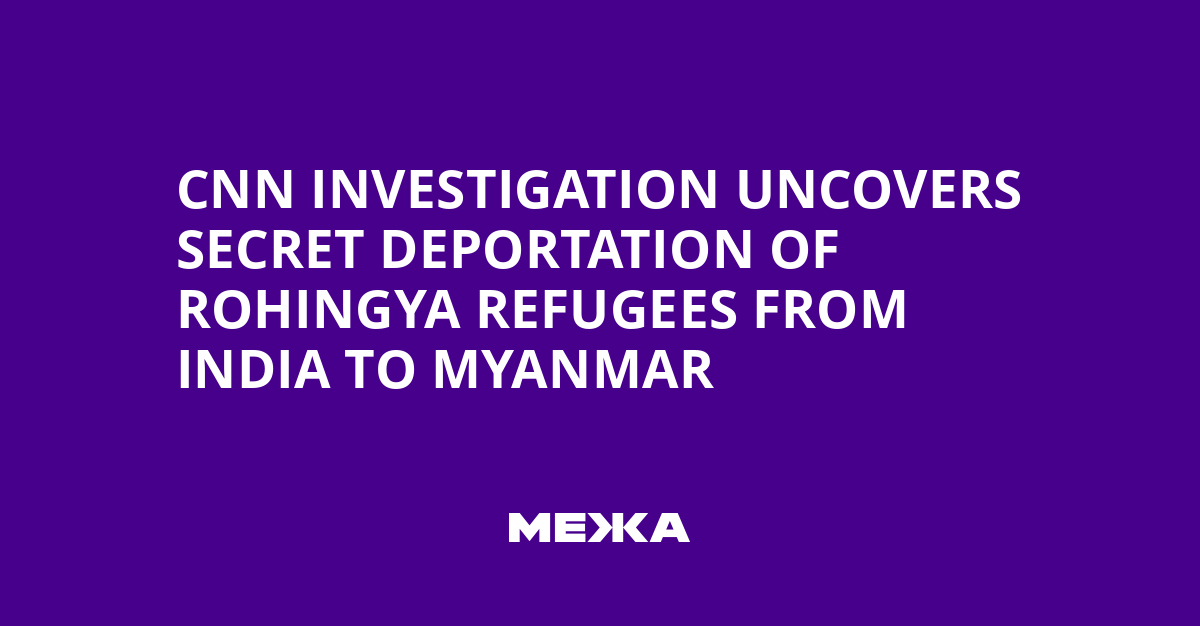CNN’s investigation, based on testimony from India, Myanmar and Bangladesh, raises questions about secret deportations of Rohingya refugees from India to Myanmar. Such actions, according to experts’ findings, contradict both international refugee protection law and the internal norms of the affected country.
Among those deported were 40 Rohingya: 13 women and 27 men. They lived in the capital region and its outskirts, seeking asylum after the armed crackdown in Bangladesh and in their homeland.
In May 2024, they were summoned for biometric data collection. According to preliminary data, they were separated, boarded a plane from New Delhi and taken to Port Blair in the Andaman and Nicobar Islands. From there they were transported by sea, their eyes were blindfolded and they were threatened with weapons, after which they were forced to disembark on the shore near Myanmar.
According to the investigation, the group was handed over to the control of military or allied security forces and sent to the Tanintharyi region, where an armed conflict is ongoing. Such actions, according to the UN and human rights advocates, violate international norms on refugee protection and threaten people’s lives.
The CNN investigative report, based on testimony from India, Myanmar and Bangladesh, indicates that the Indian government “secretly gathered” and deported 13 women and 27 men outside legal procedures, raising serious questions about adherence to legal norms and sovereignty.
“The idea that Rohingya refugees were dumped at sea from military ships is nothing short of an abhorrent violation of human dignity.”
– Tom Andrews
“Such cruel actions would be a brazen affront to human dignity and a serious threat to international law, which prohibits expelling people to places where their lives are at risk.”
– Tom Andrews, the UN Special Rapporteur on Human Rights in Myanmar
Consequences for refugees and the international community’s response
There were few official comments from India’s Ministry of Home Affairs, and CNN’s requests to several agencies remained unanswered at the time of publication. Human rights advocates warn that such actions may violate international refugee obligations and set a precedent for forcible returns to countries where people’s lives are at risk.
About 20,000 Rohingya live in India under precarious legal status: many lack official recognition as refugees by international bodies. Some of those deported ended up under the control of armed groups in southern Tanintharyi, complicating their location and increasing risks to their lives.
The Indian government continues to state that migratory steps are taken in accordance with the law, but the international community calls for a transparent investigation and accountability for any violations. Human rights advocates emphasize the need to protect refugees and safeguard their rights during migration procedures.
The exact whereabouts of the 40 deported are currently unknown; testimony indicates they were placed under the control of armed groups in Myanmar, where fighting continues. This underscores the need for independent investigation and strict adherence to human rights during such operations.
This case highlights the sharp intersection between migration policy and refugee rights. The investigation emphasizes the need for transparency and accountability by countries responsible for protecting those seeking asylum and for upholding norms prohibiting forcible returns.
In conclusion, the available evidence points to possible violations of refugee rights and India’s asylum obligations. An independent investigation and accountability for any actions that threaten the lives of people seeking shelter outside their countries are necessary.
